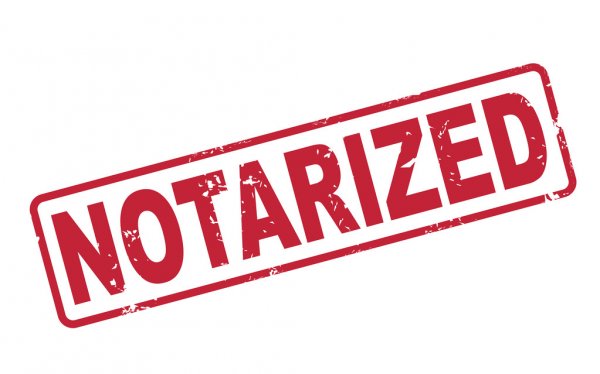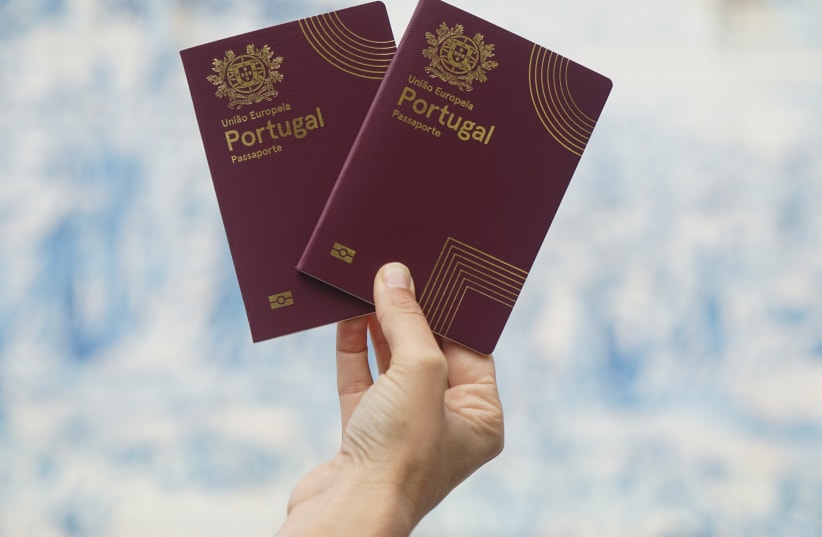Dual Portuguese citizenship for South Africans allows individuals to be legally recognised as citizens of Portugal and South Africa at the same time, granting them the rights and privileges of both nations. This status presents a wealth of opportunities for South African citizens. Notably, this status provides a gateway to the European Union, a union of 27 European countries, offering benefits such as visa-free travel, property ownership, voting rights, and the ability to live, work and study in any EU country. However, the process of acquiring Portuguese citizenship is subject to specific eligibility criteria.
 Whether obtained through birth, descent, naturalisation or the Portugal Golden Visa programme, the path to Portuguese dual citizenship for South Africans requires careful attention to detail and a number of completed criteria, such as documentation and citizenship procedures and regulations in both Portugal and South Africa. This article outlines the process of obtaining Portuguese dual citizenship, highlighting eligibility and special circumstances.
Whether obtained through birth, descent, naturalisation or the Portugal Golden Visa programme, the path to Portuguese dual citizenship for South Africans requires careful attention to detail and a number of completed criteria, such as documentation and citizenship procedures and regulations in both Portugal and South Africa. This article outlines the process of obtaining Portuguese dual citizenship, highlighting eligibility and special circumstances.
What is Dual citizenship in South Africa?
South Africa recognises dual citizenship; however, to formalise this status, a South African citizen aged 18 years or older must submit an application to the Department of Home Affairs for the retention of their citizenship. As per the South African Citizenship Amendment Act of 2004 (No. 17 of 2004), retention of South African citizenship is only possible if the application for retention is submitted prior to acquiring foreign citizenship. If a South African citizen does not obtain this approval before acquiring foreign citizenship, they will automatically lose South African citizenship when they acquire foreign citizenship.
 The South African Citizenship Act also stipulates that it is an offence for a South African citizen holding dual citizenship to enter or depart South Africa using a passport of another country. Therefore, if you hold dual Portuguese citizenship, you must always enter and depart South Africa using your valid South African passport. South African dual citizens can use their foreign passport freely outside of South Africa; however, they are not allowed to use their foreign passport/citizenship to gain an advantage, avoid a duty or responsibility that a South African citizen would otherwise have or be subjected to.
The South African Citizenship Act also stipulates that it is an offence for a South African citizen holding dual citizenship to enter or depart South Africa using a passport of another country. Therefore, if you hold dual Portuguese citizenship, you must always enter and depart South Africa using your valid South African passport. South African dual citizens can use their foreign passport freely outside of South Africa; however, they are not allowed to use their foreign passport/citizenship to gain an advantage, avoid a duty or responsibility that a South African citizen would otherwise have or be subjected to.
Finally, it is important to note that South African citizens who obtained their citizenship by birth and subsequently lost their South African citizenship retain their permanent residency status in South Africa.
Dual citizenship eligibility criteria in Portugal
 Portugal has a welcoming approach to dual citizenship. Portugal not only permits dual citizenship but also multiple citizenship, meaning individuals can hold citizenship in Portugal, in South Africa, and in another country simultaneously. Portugal’s requirements for obtaining dual citizenship vary depending on several factors, including your current ancestry and residency status. The main pathways to acquiring dual citizenship in Portugal today are:
Portugal has a welcoming approach to dual citizenship. Portugal not only permits dual citizenship but also multiple citizenship, meaning individuals can hold citizenship in Portugal, in South Africa, and in another country simultaneously. Portugal’s requirements for obtaining dual citizenship vary depending on several factors, including your current ancestry and residency status. The main pathways to acquiring dual citizenship in Portugal today are:
- Descent or birth (e.g., ancestry)
- Naturalization of foreign residents (e.g., Legally resident in Portugal for at least five years)
- Marriage to a Portuguese citizen;
- Portugal Golden Visa program, which is particularly popular among investors.
Dual citizenship Ineligibility criteria in Portugal
- Criminal records: Criminal records are a key factor in the evaluation of nationality applications. If you’ve been convicted of a crime in Portugal that would get you at least 3 years in prison, you might not be granted nationality. The same goes if you’ve been convicted of a crime in Portugal that’s punishable by at least 3 years’ imprisonment.
- Threat to national security: If a candidate is considered a threat to national security, their application will be refused. This includes individuals suspected of involvement in terrorist activities or criminal organizations.
- Public functions or military service: If the person has public posts that aren’t mostly technical, or has done non-compulsory military service for another country, this could be grounds for refusal of the application.
- Lack of effective connection: It is necessary to prove a solid and effective connection to the Portuguese national community. This may include the ability to speak Portuguese and participation in the country’s social and cultural life.
- Lack of adequate documentation: The absence of necessary documents, such as birth certificates or criminal record certificates, can result in the refusal of the application. It is essential to ensure that all documents are complete, legible, and duly authenticated, legalized, or apostilled.
Required Documentation for Dual Portuguese citizenship for South Africans
The dual Portuguese citizenship for South Africans application process has an application form to go along with the required documents, which include depending on the circumstances:
- Birth certificate
- Valid passport
- Evidence of a current residency permit
- Evidence of place of birth, current residence, and a list of countries previously resided in
- Police clearance certificate
- Marriage certificate
- Proof of Portuguese knowledge
- Proof of economic stability/income/financial independence
Costs and Timeframe
- If you’ve been living in Portugal for five years, you can apply for dual Portuguese citizenship by naturalisation.
- If you are married to a Portuguese national, you can apply for dual Portuguese citizenship after three years. However, under the new amendments to the law, if your spouse is Portuguese and you have a child in Portugal, then you can apply directly for citizenship.
- The dual Portuguese citizenship processing time varies depending on your situation. Citizenship by descent, especially if you have Portuguese parents, is usually faster, ranging from a few months to a year.
- Citizenship by naturalization typically takes longer, potentially several months to up to two years. Factors such as your nationality and the completeness of your application can influence the waiting period.
- Depending on how fast the government handles your documentation and whether there are any problems with your application, the processing period for South Africans can range from a few months to up to two years.
- Fees to apply for Portuguese Dual citizenship range from R3342 to R4775, but if you are under 18 and claiming citizenship by descent, then you can apply for free. Passport cost around R2000 if you are applying while abroad, but if you are applying in Portugal, it goes down to R1200.
Language requirements: Passing the CIPLE exam
All applicants for permanent residency or dual Portuguese citizenship must demonstrate their basic knowledge of the Portuguese language. Candidates are expected to pass the A2 language test, more formally known as the CIPLE exam, to fulfil this requirement. This test evaluates the fundamental command of the Portuguese language and ensures that applicants can comprehend and articulate common expressions and phrases.
Global Apostille Document Authentication and Translation:
The document authentication and translation phase is critical because incorrect translations and legalisation lead to applications for dual citizenship being rejected. Global apostille can help translate and apostille your application for dual Portuguese citizenship may accepted. We can translate and apostille birth certificates, police clearance certificates, marriage certificates and passports. Both South Africa and Portugal are part of the Hague Apostille Convention of 5 October 1961, meaning they use a single legalisation process to get documents apostilled rather than embassy legalisation. Global apostille further makes this process even much easier by offering expedited apostille services from the Department of International Relations and Cooperation (DIRCO) and the South African High Court.
Our service provides a comprehensive solution, guaranteeing smooth legalisation and translation procedures. Contact us to find out more about our services: Tel: 012 348 3134 or 081 347 6060 | Email: info@apostillelegalisation.co.za
FAQs about dual Portuguese citizenship for South Africans
1. Can you have citizenship from more than two countries, and do Portugal and South Africa allow that?
Yes, you can have multiple citizenship from more than two countries, and both Portugal and South Africa allow that.
2. What is the process for obtaining Portuguese nationality if I have Portuguese parents but live overseas?
If you have Portuguese parents but live overseas, you likely qualify for Portuguese citizenship by descent. Eligibility requires that you were born outside Portugal to at least one parent who was a Portuguese citizen at the time of your birth.
The application process involves contacting your nearest Portuguese consulate or embassy, submitting required documents, and possibly attending an interview.
3. What is the difference between permanent residency and citizenship in Portugal?
In Portugal, citizenship grants you all EU rights, including the right to a Portuguese passport and the right to vote and take part in elections, whilst permanent residency only gives the right to live and work indefinitely in Portugal.
4. Will I still have the right to vote in South Africa once I receive my Portuguese citizenship?
Yes, by South African law, you will still have the right to vote even if you obtain your Portuguese Citizenship, as long as you applied and were approved for dual citizenship by South Africa. However, you won’t be able to participate in the regional or provincial elections, you can only participate in the national elections.
5. Do I lose my Portuguese citizenship if I decide to return to South Africa permanently?
No, if you’ve obtained Portuguese citizenship and decide to return to South Africa permanently, you will not lose your Portuguese citizenship.










